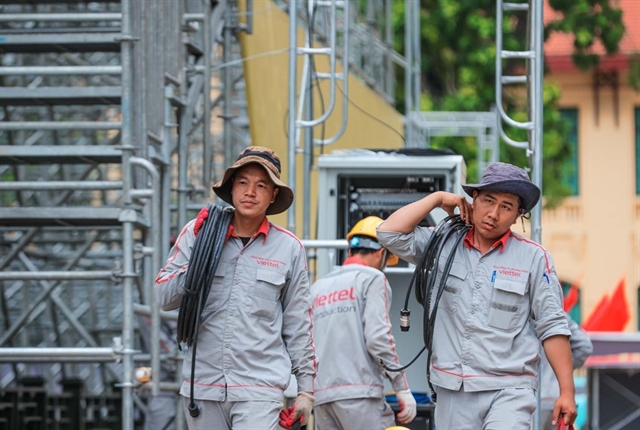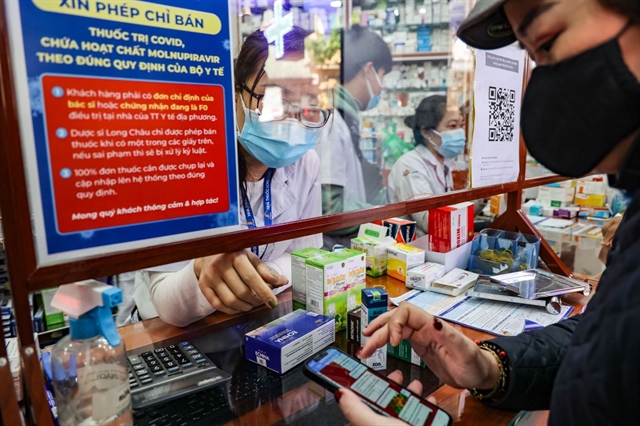 Society
Society


|
| A woman buys COVID-19 treatment drugs at a pharmacy. — Photo VNA/VNS Photo |
HÀ NỘI — Regarding the recent Health Ministry suggestion that asymptomatic COVID-19 cases (F0) and close contacts (F1) can still go to work during their quarantine period, a trade union official has called for support mechanisms to ensure the patients’ benefits.
Deputy Head of the Department of Labour Relations, under the Việt Nam General Confederation of Labour, Hồ Thị Kim Ngân said that the proposal must be based on scientific evidence that continuing to work while being F0 does not affect health.
Even if they do continue to work, they were still patients. Therefore, working conditions must ensure occupational safety and hygiene, she said.
Emphasising the rights of employees, Ngân said that F0/F1 patients could still be unwell. In many countries, if someone was infected with COVID-19 in the workplace, the illness was considered an occupational accident.
“When employees are eligible to work, insurance benefits must be taken into account, as well as incentives for employees to feel satisfied and see that they are cared for in terms of salary and benefits,” Ngân said.
“If there is no mechanism to support the patients, they will either receive their normal salary or sick leave with insurance benefits. In this case, the employees would rather choose to not go to work,” she said.
Ngân said if F0/F1 were allowed to continue working, it must be the patient's voluntary choice.
As each person's response to the disease is different; some only have mild symptoms while others have major health impacts. Employees have the right to refuse to go to work if the job affects their health, according to Ngân.
It is unreasonable to mandate the patient's work. Employers should not use this as a basis to evaluate the workers’ attendance and reduce their salaries, bonuses or other welfare conditions.
Reasonable proposal
Associate Professor and Dr Trần Đắc Phu, former director of the Ministry of Health's Department of Preventive Medicine and senior advisor to the Centre for Emergency Response to Public Health Events in Việt Nam, said the ministry’s proposal was reasonable.
“Việt Nam is loosening quarantine measures. There are many F0 and F1 cases now; if they are all quarantined we would face a shortage of workers,” he said.
“Loosening regulations on isolation does not mean reducing disease prevention and control,” he said. “The ministry recommends F0 and F1 to go to work, but the final decision is still on employers - agencies, units or enterprises and localities. If they don't perform well in disease prevention, it will pose a high risk that the entire agency/units will become F0. As a result, no one will be eligible to work," he said.
Phu emphasised that F0 and F1 going to work must strictly implement disease prevention measures, such as absolute compliance with the 5K message.
They would also need regular health monitoring. When there are any abnormal signs of health, they must be tested immediately for appropriate treatment and isolation measures.
Agencies and enterprises must develop plans and scenarios to handle when a COVID-19 infection is detected.
Doctor Trương Hữu Khanh, former head of the Department of Infection and Neurology at HCM City's Children's Hospital 1, said that it was necessary to let F0 and F1 continue working in the current situation.
“If the regulations on quarantine remain unchanged, it will lead to a shortage of human resources in agencies and enterprises,” he said, adding that currently, the Omicron variant predominated and that most COVID-19 cases were milder or asymptomatic. — VNS